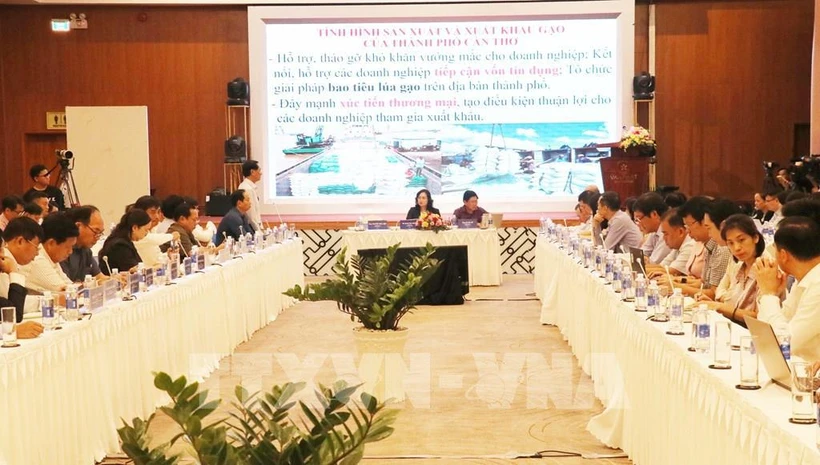Mekong Delta likely to benefit from regional linkages in trade promotion
To enable the Mekong Delta to fully tap its potential, it is necessary to promote regional linkages in trade promotion and export-import activities, which would help consolidate and optimise local resources for sustainable development, according to Deputy Minister of Industry and Trade Phan Thi Thang.

To enable the Mekong Delta to fully tap its potential, it is necessary to promote regional linkages in trade promotion and export-import activities, which would help consolidate and optimise local resources for sustainable development, according to Deputy Minister of Industry and Trade Phan Thi Thang.
In the first six months, the region's GRDP growth rate was estimated at 6.12%, with its total import-export turnover reaching 19.5 billion USD, resulting in a trade surplus of 6.6 billion USD.
However, according to the Deputy Minister, the Delta’s economy still only accounts for over 12% of the national economy. Some localities are experiencing slower economic growth, and economic restructuring efforts are not meeting expectations. Regional cooperation remains limit ed, lacking depth, with certain cooperation agreements still being symbolic rather than practical. Integrated industry clusters and service linkages have yet to be established.
Tran Quoc Toan, Deputy Director of the Agency of Foreign Trade under the Ministry of Industry and Trade (MoIT), suggested localities in the Delta, particularly the regional coordinating committee, continue focusing on investment in infrastructure, particularly transport networks, as well as the implementation of scientific and technological solutions to ensure sustainable production for exports.
Statistics from the ministry show that many Vietnamese product categories have exceeded export revenues of over 1 billion USD each, such as fruits and vegetables, rice, and shrimp. For rice alone, Vietnam is projected to export over 8 million tonnes this year, with 7.6 million tonnes originating from the region.
Despite these advantages, its economic growth has yet to be on par with potential. The region also faces challenges such as climate change, declining water resources, and saltwater intrusion. Therefore, accurately assessing both the potential and challenges, while developing suitable solutions, is crucial to achieving its goal of becoming a developed region nationwide./.








